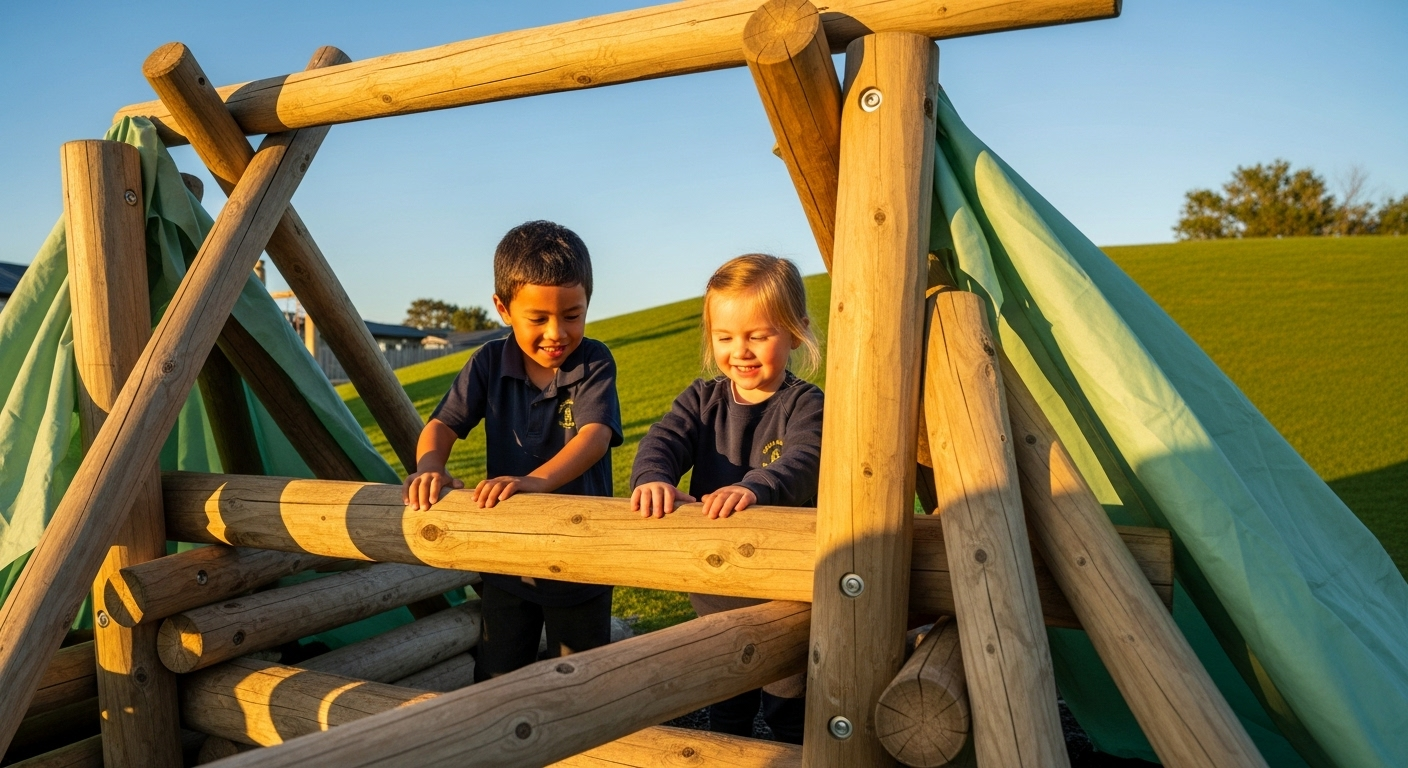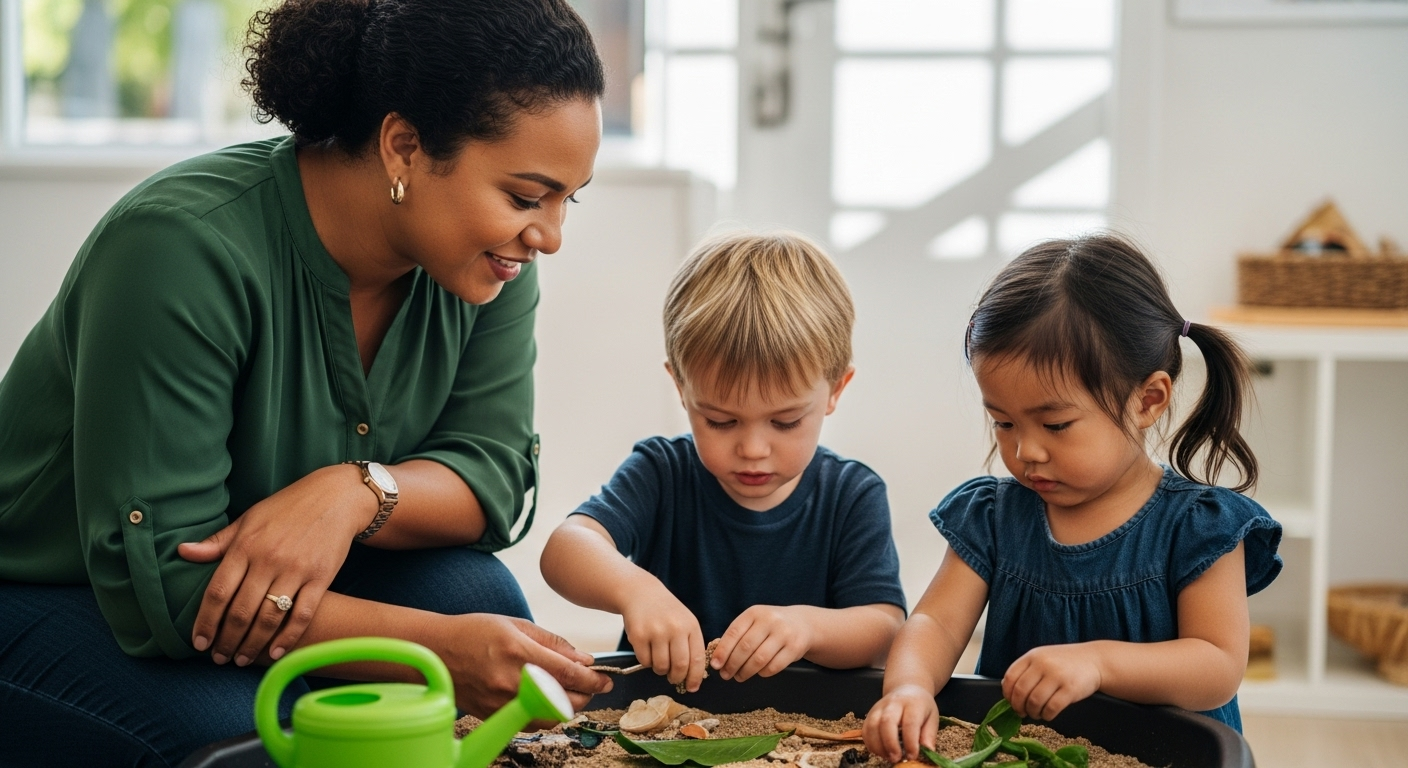Beyond Play: The Heart of New Zealand's Early Childhood Education Framework
The Benefits of Play-Based Learning: Why it Works
Key Takeaways
- Play-based learning fosters holistic development, nurturing cognitive, social, emotional, and physical skills simultaneously.
- Children learn best when they are actively engaged and intrinsically motivated, which play naturally provides.
- This approach encourages problem-solving, creativity, and critical thinking in a supportive environment.
- Educators act as facilitators, guiding children's explorations and extending their learning through observation and interaction.
- It's a foundational approach that prepares children for future academic success and lifelong learning.
At our centre, we've seen firsthand the incredible power of play-based learning. It's not just about having fun; it's a deeply intentional approach that underpins everything we do. We believe that when children play, they are doing their most important work – they are learning, growing, and making sense of the world around them.
Our philosophy is rooted in the understanding that children are natural explorers and scientists. They learn by doing, experimenting, and interacting with their environment and with others. This is why our philosophy embraces play as the primary vehicle for early childhood education.

What is Play-Based Learning?
Play-based learning is an educational approach where children learn through play. It's about providing rich, stimulating environments and opportunities for children to explore, discover, create, and problem-solve at their own pace. In our experience, this looks like children building elaborate structures with blocks, engaging in dramatic play scenarios, or investigating the properties of water and sand.
We've found that this method contrasts sharply with more traditional, didactic teaching where information is simply delivered to passive learners. Instead, we encourage active participation and curiosity, ensuring that every child feels empowered to lead their own learning journey.
The Profound Benefits of Play-Based Learning
The advantages of a play-based approach are extensive, touching every aspect of a child's development. We've seen these benefits unfold daily within our classrooms.
Cognitive Development
When children engage in play, their brains are incredibly active. They are constantly making connections, solving puzzles, and developing their understanding of concepts. For example, building with blocks teaches spatial reasoning and basic physics, while board games introduce number sense and strategic thinking. A study published in the Journal of Early Childhood Research highlights that play significantly contributes to cognitive development, fostering problem-solving skills and critical thinking from a young age.
We observe children developing their language skills through storytelling during imaginative play and expanding their vocabulary as they describe their creations or discoveries. It's a natural, organic way for complex cognitive processes to develop.
Social and Emotional Growth
Play is a powerful tool for developing crucial social and emotional skills. Through shared play experiences, children learn to negotiate, share, cooperate, and resolve conflicts. They learn to understand different perspectives, develop empathy, and build friendships.
A common scenario we observe is children collaborating to build a fort. They must communicate their ideas, compromise on design elements, and work together to achieve a common goal. These interactions are invaluable for fostering emotional regulation and social competence, skills that are essential for success in school and life.
Physical Development
From fine motor skills involved in drawing and manipulating small objects to gross motor skills developed through running, jumping, and climbing, play provides endless opportunities for physical development. Our outdoor play areas are designed to encourage active exploration, allowing children to strengthen their bodies and improve coordination.
We've seen children gain confidence in their physical abilities as they master new challenges, whether it's balancing on a beam or pedalling a tricycle. This physical activity is also vital for overall health and well-being.
Creativity and Imagination
Play is the birthplace of creativity. When children are free to explore without rigid rules or predetermined outcomes, their imaginations soar. They invent stories, create new worlds, and express themselves in unique ways.
We provide open-ended materials – things like loose parts, art supplies, and dress-up clothes – that can be used in countless ways. This encourages divergent thinking and allows children to express their individuality. It’s truly inspiring to witness the innovative solutions and imaginative narratives they come up with.

The Role of the Educator in Play-Based Learning
Our educators are not simply observers; they are active participants and facilitators in the learning process. We carefully design environments that invite exploration and provide resources that spark curiosity. We also know when to step back and when to step in.
In our experience, a skilled educator observes children's play, identifies teachable moments, and extends learning through thoughtful questions and suggestions. For example, if children are building a bridge, an educator might ask, "What do you think will happen if we add more weight here?" or "How can we make it stronger?" This subtle guidance deepens their understanding without stifling their autonomy.
Why We Champion Play-Based Learning
We champion play-based learning because we believe it's the most effective way to prepare children for a future that demands adaptability, creativity, and strong interpersonal skills. It's an approach that respects the child as an individual, fostering a love of learning that lasts a lifetime.
Costs can vary for early childhood education, but the investment in a play-based approach pays dividends in a child's holistic development. We see it as laying a strong foundation for future academic success and personal well-being. It’s about nurturing happy, confident, and capable learners.

